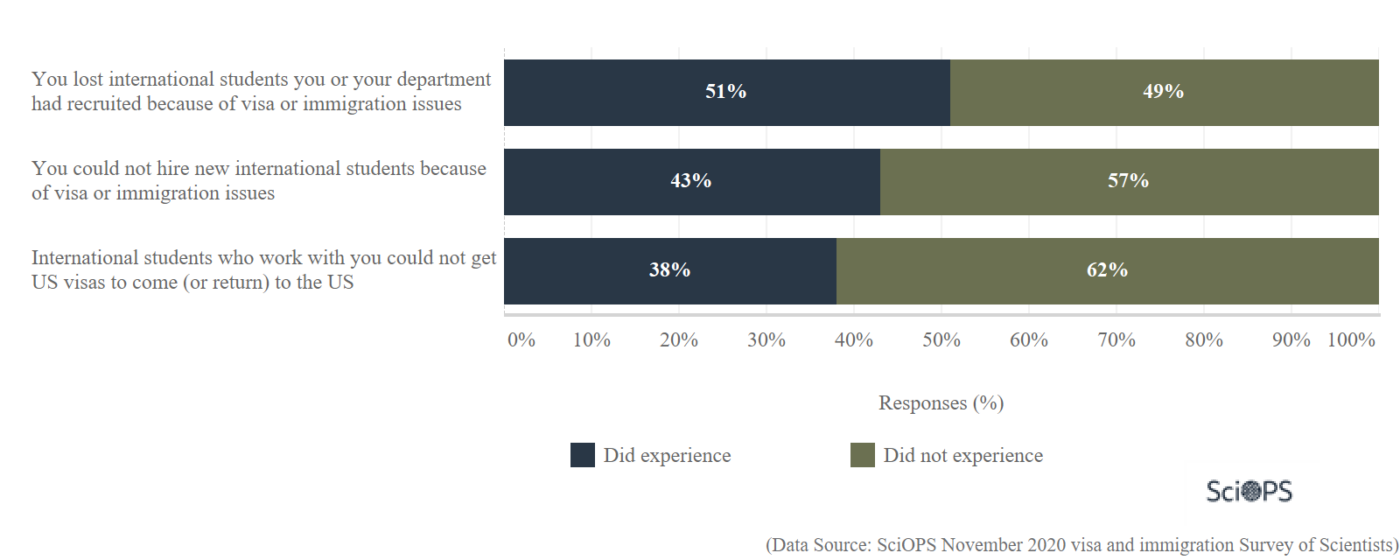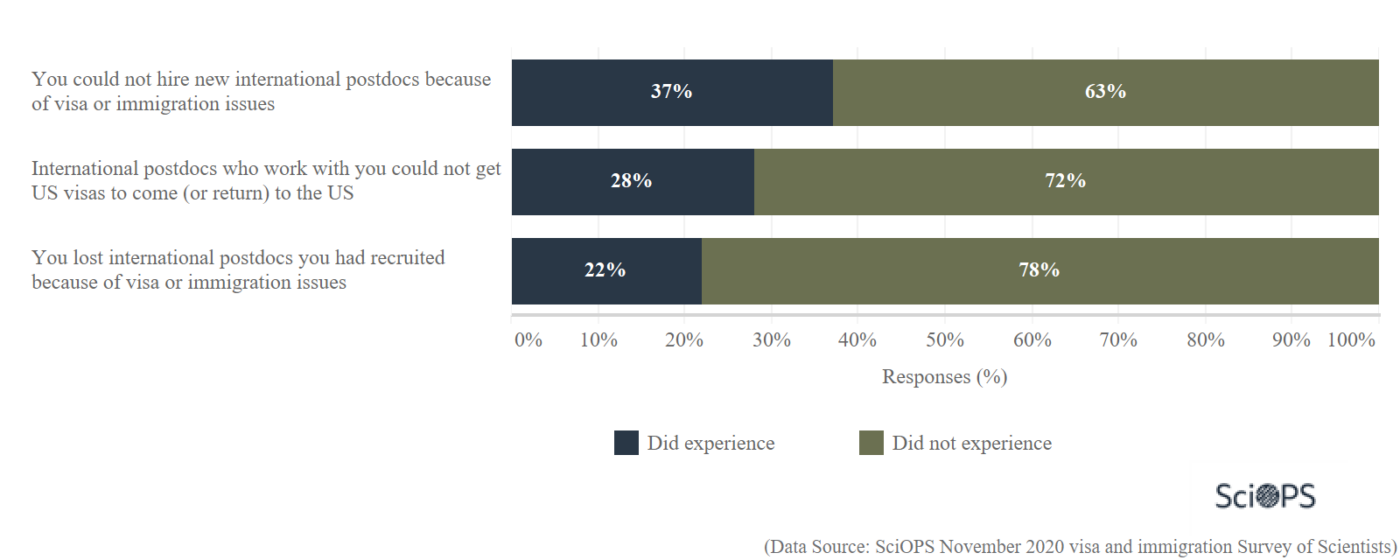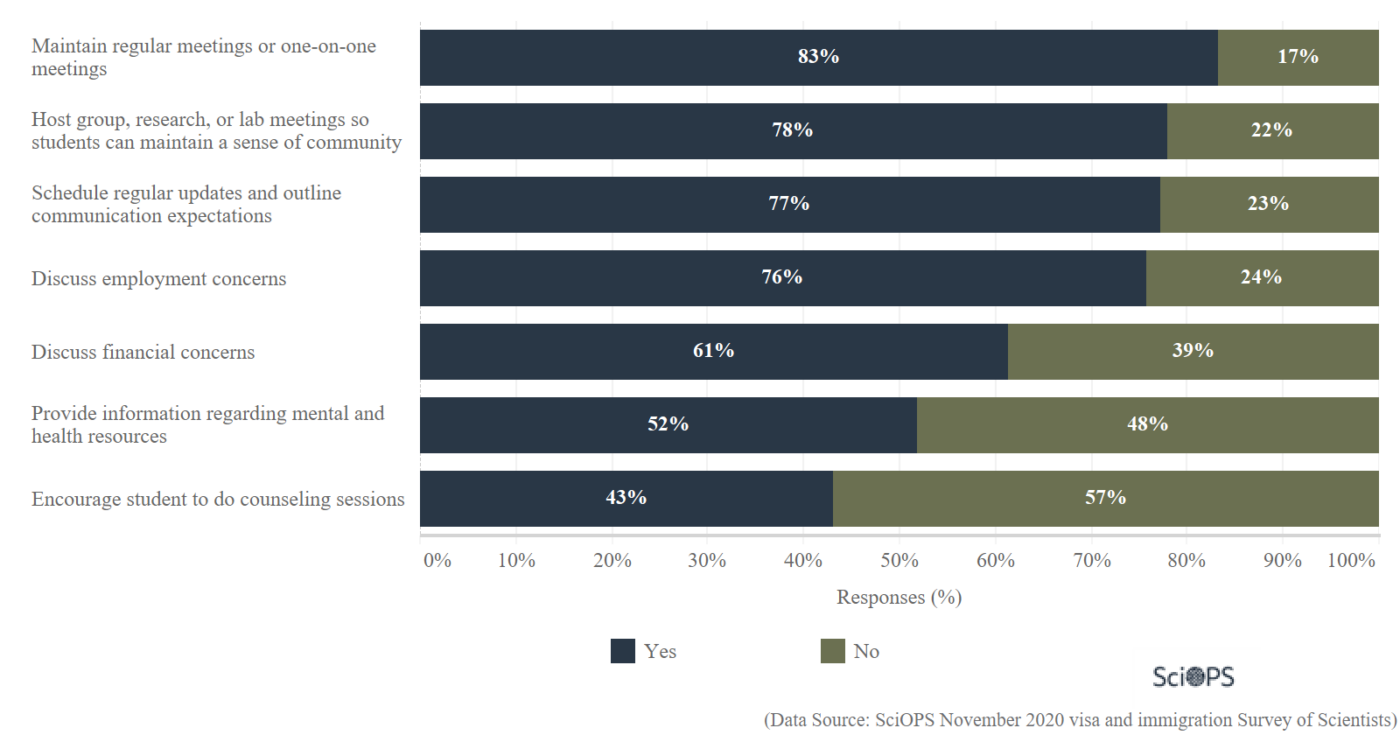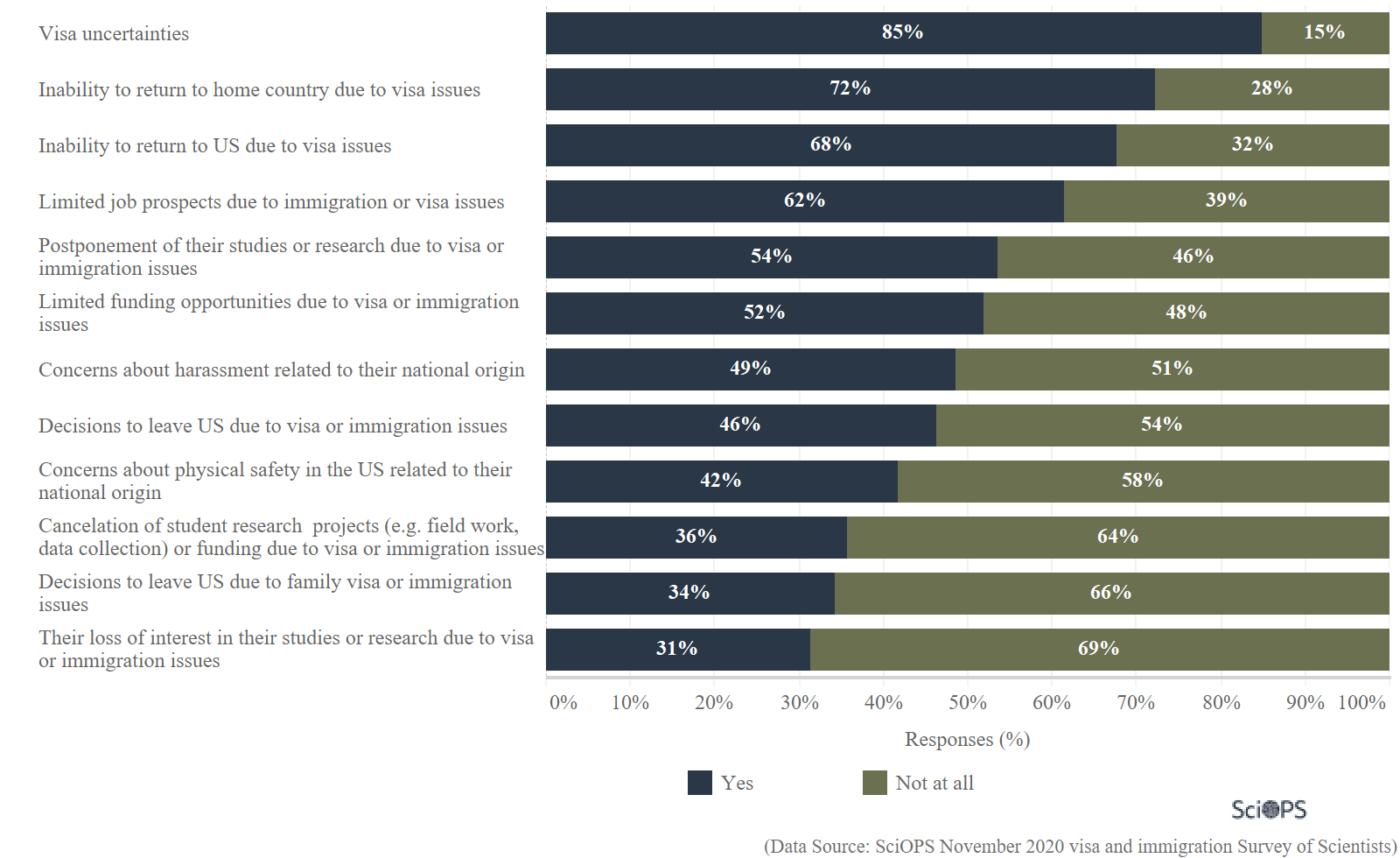Visa & Immigration: Impacts on Scientific Workforce
The survey sample was weighted by gender and academic field to represent the population as closely as possible. The measure of sampling error for questions answered by the full sample is plus or minus 5 percentage points.
This study explores impacts on the emerging scientific workforce, particularly international students and postdocs, due to changes and delays to the US visa and immigration process over the past year. Responses on this page are part of a larger survey on visa and immigration impacts on higher education with additional topics covering mobility and policy impacts.
Question

About 75% of scientists said that US visa and immigration policies have increased international students’ preference for jobs outside of the US after graduation.
About 90 percent responded that current visa and immigration policies have decreased international students’ applications to study in the US.
Question

More than one-half of all respondents (51%) lost international student recruits due to visa or immigration issues.
Among respondents, 43% could not hire new international students because of visa and immigration-related issues.
Question

Among respondents who employ postodcs, 37% could not hire new international postdocs because of visa and immigration-related issues.
Among scientists who employ postdocs, less than one-quarter (22%) lost international postdocs they had recruited due to visa or immigration issues.
Question

For scientists, the three most common ways of supporting and engaging international students are through:
-
- regular meetings (83%)
- group, research or lab meetings(78%)
- regular updates and outline
communication expectations (77%)
About 52% of the scientists provide information regarding mental and health resources to their international students. 43% have encouraged students to do counseling sessions.
Question

About 85% of respondents discussed visa uncertainties with international students or postdocs.
Approximately half of respondents discussed postponement of studies (54%) and concerns about harassment (49%) with international students or postdocs.
Less than one third discussed loss of interest in studies or research (31%) with international students/postdocs in the past 12 months.
Survey Description
This national survey of biologists, engineers, and geographers on 2020 visa and immigration policy impacts was conducted by the Center for Science, Technology and Environmental Policy Studies at Arizona State University. The population for the survey represents a random sample of academic scientists (tenured, tenure-track, and non-tenure-track) who work in three departments (biology, civil and environmental engineering, and geography). These scientists work at 60 randomly selected universities classified as Carnegie designated research extensive (R1) universities in the United States. A total of 2,443 individuals were invited to participate in the survey via email invitations with a series of personalized email follow-up reminders. Survey invitations with a unique ID, passwords, and hyperlink to the survey were sent on October 22 and 23, followed by three reminder messages. The survey was closed on November 23rd.
A total of 419 usable responses were collected, representing an AAPOR response rate (RR4) of 17.4%. The survey sample was weighted by gender and academic field. The measure of sampling error for questions answered by the full sample is plus or minus 5 percentage points. The survey was developed by the team during September-October 2020. The questionnaire included sections asking about the impacts of current US visa and immigration policies on scientific research and collaboration, the higher education system, and different policy objectives over the past 12 months. The instrument was electronically programmed (in English) using the Sawtooth Software ® system. The survey was approved by Institutional Review Boards at Arizona State University and at the University of Illinois at Chicago.
